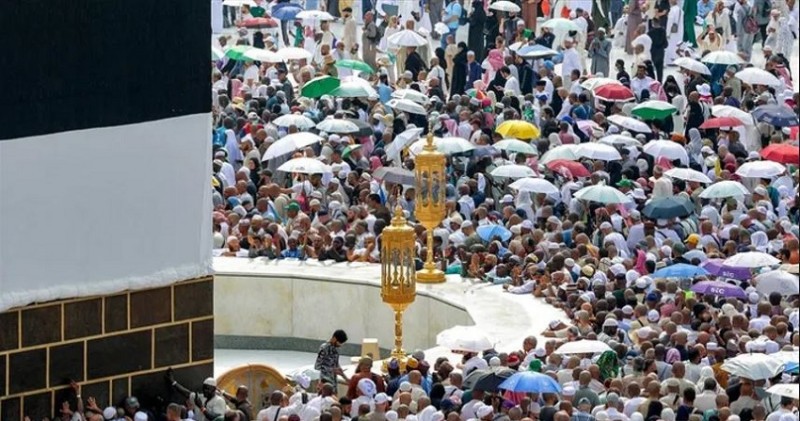
MECCA: More than 1,000 pilgrims have tragically lost their lives during this year's hajj pilgrimage in Mecca, Saudi Arabia, where temperatures soared close to 52°C (125°F). The majority of the victims were unregistered worshippers who participated in the pilgrimage despite not having official permits, Saudi authorities confirmed.
The deaths, which have been reported by approximately 10 countries, highlight the challenges faced by pilgrims during one of Islam's holiest rituals. The hajj, a pillar of Islam, requires all Muslims with the means to undertake the journey at least once in their lifetime. This year, the pilgrimage coincided with the blistering heat of the Saudi summer, with temperatures rising steadily each decade according to recent studies.
Egypt, with a significant number of casualties, reported 58 deaths among its pilgrims, the majority of whom were unregistered. This group faced heightened vulnerability due to their inability to access designated air-conditioned spaces, provided exclusively to authorized pilgrims.
In response to the crisis, Egyptian officials have been actively involved in locating and assisting affected pilgrims, despite the challenges posed by incomplete registration data. President Abdel Fatah al-Sisi has initiated a "crisis cell" to coordinate efforts with Saudi authorities for the repatriation and proper handling of the deceased.
Other countries such as Pakistan and Indonesia also reported fatalities among their pilgrims, underlining the widespread nature of the tragedy. Pakistan, with approximately 150,000 pilgrims, recorded 58 deaths, while Indonesia saw its toll rise to 183, a decrease from previous years.
The process of identifying and burying the deceased has begun, with Saudi authorities conducting burials in accordance with their customs. However, the scale of the tragedy has made it challenging for families, particularly in Egypt, to receive timely notifications.
While Saudi Arabia has reported over 2,700 cases of heat exhaustion, it has not disclosed specific details about the number of deaths. The situation underscores the need for enhanced safety measures and planning, especially as climate change continues to exacerbate heat-related risks during the hajj.
Looking ahead, the timing of the hajj is expected to shift earlier in the Gregorian calendar in the coming years, potentially offering cooler conditions for pilgrims. Nevertheless, the recent events serve as a stark reminder of the urgent need for proactive measures to protect pilgrims from the increasing heat stress exacerbated by climate change.
Union Health Ministry Introduces Unique Titled Comprehensive Medical Care Plan for Haj Pilgrims
Hajj Pilgrimage Begins: Millions of Muslims Gather in Mecca
Over 1,000 Pilgrims Die Amid Extreme Heat During Hajj